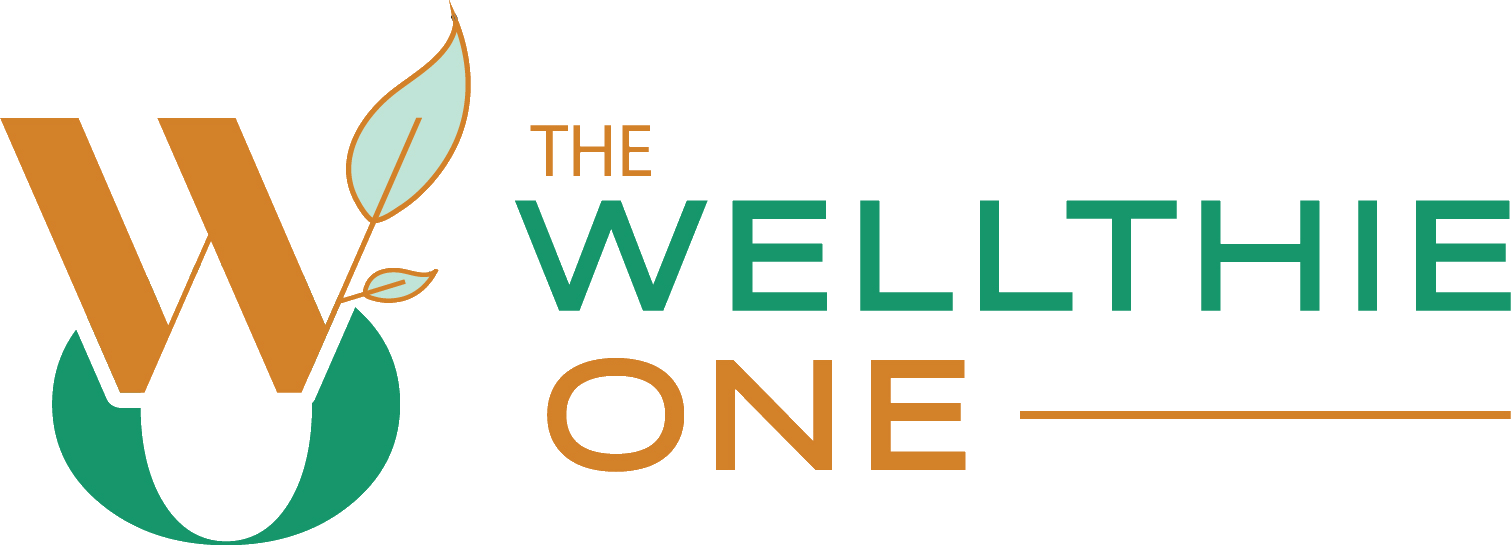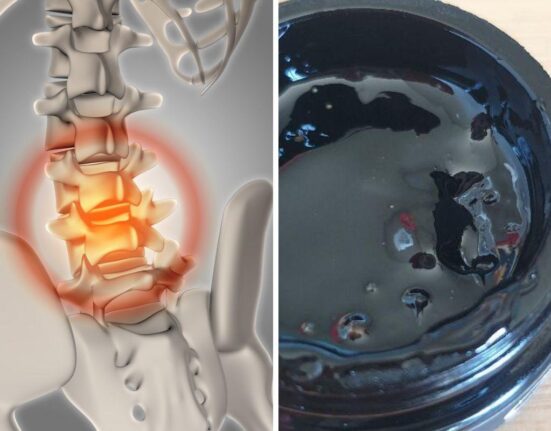When a friend of mine from the gym, Jen, first started experiencing irregular periods, she was quick to dismiss it as nothing more than a minor inconvenience.
As time went on, she noticed that her mood swings were becoming more severe. She also noticed that she could no longer do 15 reps of her weight workout, and had to decrease the weight she was lifting. Her energy levels were plummeting.

What really made Jen sit up and take notice that something wasn’t right was sudden weight gain that was stubbornly staying on her body despite her best efforts to eat less.
She tried everything to lose the extra pounds, from strict diets to vigorous exercise routines, but nothing seemed to work. It was only after consulting with her doctor that she realized her weight gain was related to hormonal imbalances, specifically low levels of progesterone.

After consulting with her doctor, Jen was surprised to learn that her symptoms were related to hormonal imbalances, specifically low levels of progesterone.
She was advised to make some lifestyle changes, including avoiding certain foods that could be blocking her natural progesterone production.
If you’re struggling with hormonal imbalance or simply want to learn more about the role of progesterone in the body, read on for a list of 11 surprising natural foods that could be disrupting your hormonal balance, and what you can do to support healthy progesterone levels.
What is progesterone?
Progesterone is a hormone produced by the ovaries in women and the testes in men, as well as by the adrenal glands.
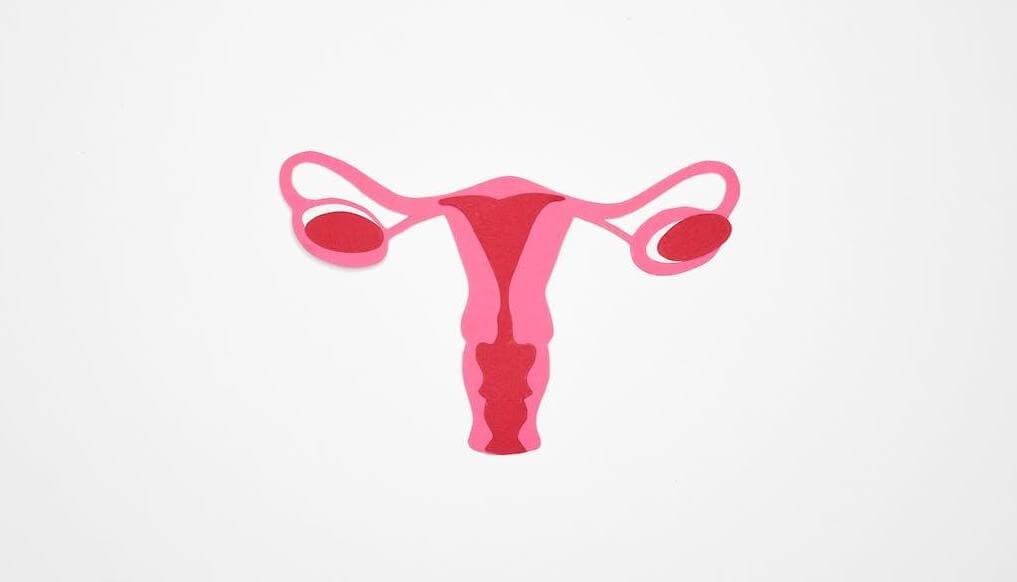
Progesterone helps to regulate the menstrual cycle and prepare the uterus for pregnancy by thickening the lining of the womb. It also helps to maintain pregnancy by preventing the uterus from contracting and promoting the growth and development of the placenta.
Aside from its reproductive functions, progesterone also has a number of other important roles in the body. It helps to:
- regulate blood sugar levels
- supports healthy bone density
- plays a role in maintaining a healthy immune system.
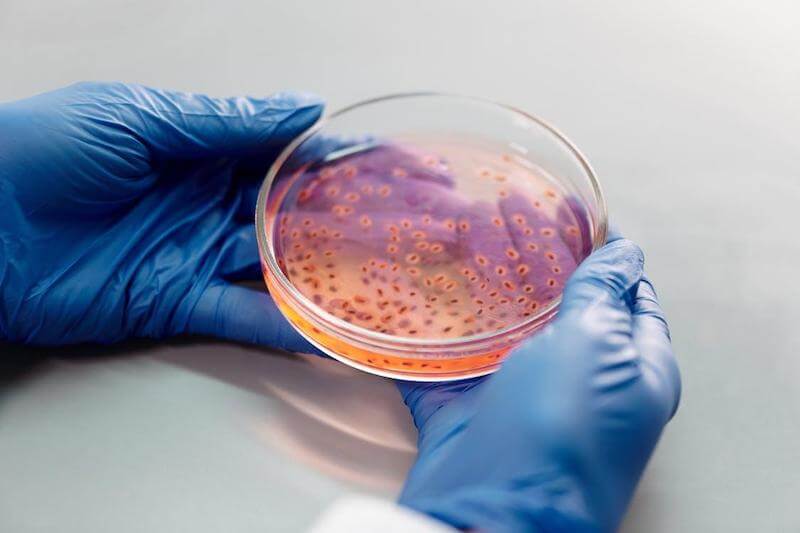
When progesterone levels are in check, it can help to support overall health and well-being. Balanced levels of progesterone can lead to regular menstrual cycles, increased fertility, improved mood, and enhanced bone health.
On the other hand, low levels of progesterone have been associated with a range of negative health effects, including irregular periods, infertility, mood swings, and decreased bone density. Therefore, maintaining healthy progesterone levels is important for overall health and well-being.
Does bio-identical progesterone supplementation help you to gain or lose weight?
The of bio-identical progesterone supplementation on weight can vary from person to person, and the results are not consistent across different studies.

One of the ways that progesterone can support weight loss is by regulating blood sugar levels and reducing sugar cravings. This can help to prevent overeating and promote healthy metabolism.

Additionally, progesterone has been shown to have a calming effect on the body, which can help to reduce stress and cortisol levels, both of which can contribute to weight gain.
However, it’s important to note that progesterone supplementation can also have the opposite effect in some cases and lead to weight gain.
One of the side effects of progesterone can be increased appetite, which can lead to overeating and weight gain. Additionally, hormonal disruptions like progesterone imbalances can cause fluid retention and bloating, which can also contribute to temporary weight gain.
Overall, the effects of bio-identical progesterone supplementation on weight are complex and depend on a range of factors including individual hormone levels, lifestyle, and other present health conditions.
If you’re considering bio-identical progesterone therapy for any reason, it’s important to discuss the potential risks and benefits with a healthcare provider who can help you determine the best course of action based on your individual needs and circumstances.
5 common symptoms of not enough progesterone present naturally in the body
1. Irregular periods

2. Infertility
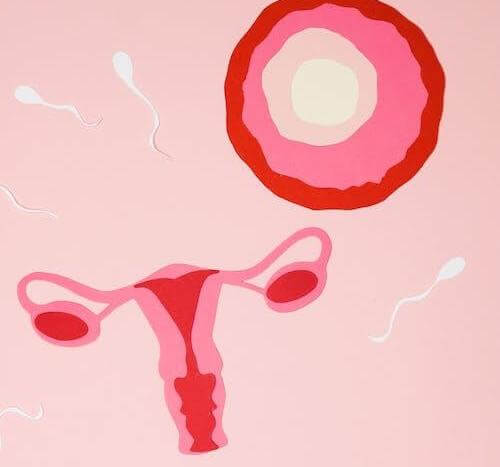
Low progesterone levels can make it more difficult to conceive and carry a pregnancy to term. If you’re struggling to get pregnant, it’s important to talk to your healthcare provider about checking your hormone levels.
3. Mood swings

4. Fatigue

5. Sleep disturbances

Norish With Melanie discusses 4 foods we can consume to naturally increase progesterone-
What are symptoms of too much bioidentical progesterone?
5 signs of too much bioidentical progesterone
1. Breast tenderness
One of the most common signs of too much bioidentical progesterone is breast tenderness or swelling. This can be uncomfortable and may make it difficult to wear certain types of clothing.
2. Sleepiness

3. Headaches

4. Nausea and vomiting

5. Changes in menstrual cycle

Additionally, some women may experience spotting or breakthrough bleeding as a result of too much progesterone.
If you’re experiencing any of these symptoms, it’s important to talk to your healthcare provider about adjusting your hormone therapy regimen. They can help you determine the best course of action based on your individual needs and circumstances.
List of 11 surprising progesterone blockers you may not be aware of
1. Agave sweetener and tequila

Agave contains compounds called saponins that can interfere with the production of progesterone in the body. This means that consuming agave products or drinking tequila can act as a progesterone hormone blocker.
2. Aloe vera

Aloe vera is a popular ingredient in skincare and health products, but it also contains compounds that can block the effects of progesterone in the body.
3. Celery
While celery has many health benefits, it also contains compounds that can block progesterone production and activity in the body.

4. Mint
Mint is often used to soothe digestion and freshen breath, but they can also act as progesterone hormone blockers.

5. Pennyroyal
Pennyroyal is an herb commonly used in tea and aromatherapy, but it can also have strong progesterone-blocking effects and should be used with caution.

6. Pomegranate
Pomegranate contains compounds called ellagitannins, which have been found to inhibit an enzyme called 17β-hydroxysteroid dehydrogenase.

By inhibiting this enzyme, pomegranate can cause a buildup of testosterone and estrone, which can lead to hormonal imbalances and decreased progesterone levels.
7. Soap nuts
Soap nuts are a natural alternative to laundry detergent, but they can also act as a progesterone hormone blocker.

8. Peppermint
Peppermint may be considered a progesterone blocker due to the presence of bioactive compounds called menthol and pulegone, which have been shown in some studies to have anti-androgenic effects and inhibit the production of testosterone.
This can lead to an increase in estrogen levels relative to progesterone, which can disrupt hormone balance and potentially lead to negative health effects.
9. Licorice root
Licorice contains compounds called phytoestrogens, which have been found to block the action of progesterone by binding to progesterone receptors in the body. This can lead to hormonal imbalances and decreased progesterone levels. In addition, licorice can also interfere with the production of cortisol, a hormone that plays an important role in stress response.

10. Soy products
While soy is often touted as a health food, it contains compounds called phytoestrogens that can interfere with the body’s natural hormone production, including progesterone.

11. Flaxseed

It is important to remember that while some of these foods and supplements may have progesterone-blocking effects, they can be safe and healthy in moderation. If you’re concerned about your progesterone levels or experiencing symptoms of hormonal imbalances, it’s always best to talk to your healthcare provider about testing and treatment options.
10 unnaturally sourced progesterone hormone blocker foods and substances that many are exposed to on a daily basis
1. Pesticides

2. Plastics

3. Soy
Soy contains phytoestrogens, which have been shown to interfere with progesterone production.
4. Dairy

5. Meat

6. Alcohol

7. Stress

8. Synthetic fragrances

9. Parabens
Parabens are commonly used as preservatives in personal care products and foods, but they have been shown to mimic the effects of estrogen in the body.

10. Phthalates
Phthalates are often found in plastics and personal care products, and they can also have estrogen-like effects in the body.
It’s important to be mindful of these potential sources of progesterone hormone blockers and take steps to reduce exposure where possible.
Eating organic produce, using natural personal care products, and reducing stress levels are all ways to support natural hormonal balance and protect your overall health and well-being.
Sources and additional reading
- “9 Foods That Can Boost Your Progesterone Levels Naturally” by Dr. Axe, available at https://draxe.com/nutrition/foods-that-boost-progesterone/
- “10 Surprising Things that Can Decrease Your Progesterone Levels” by Natural Fertility Info, available at https://natural-fertility-info.com/things-that-can-decrease-progesterone.html
- “7 Foods That Can Lower Your Progesterone Levels” by Flo Living, available at https://www.floliving.com/foods-lower-progesterone-levels/
- “5 Herbs to Boost Progesterone Naturally” by Natural Health Advisory, available at https://www.naturalhealthadvisory.com/daily/fertility-and-pregnancy/5-herbs-to-boost-progesterone-naturally/
- “The Link Between Diet and Hormones: What You Need to Know” by MindBodyGreen, available at https://www.mindbodygreen.com/articles/the-link-between-diet-and-hormones-what-you-need-to-know
The links used on thewellthieone.com are affiliate links, which may provide a small commission. This does not increase the price of the goods for the consumer whatsoever. What it does is ensure that useful content like this can continue to be produced. Thank-you for enjoying our content and allowing us to continue to provide more.
